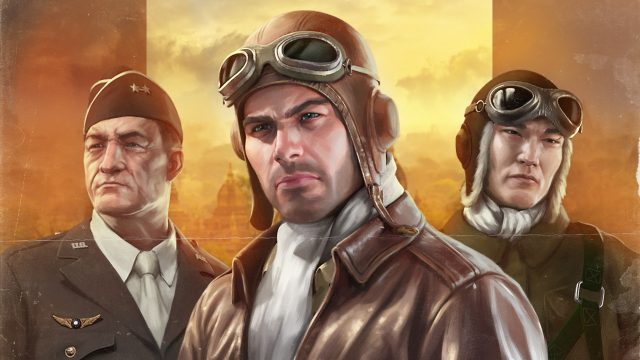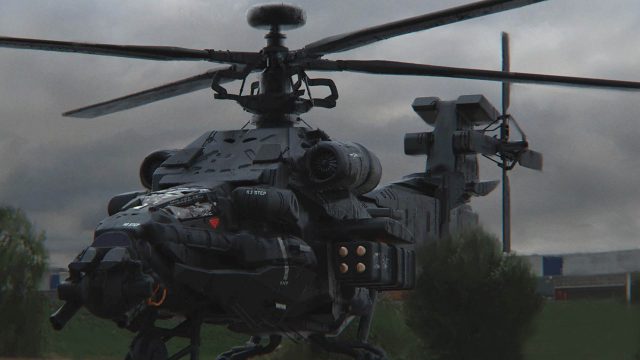
‘KIPLING’ AVIATION ART UPDATE LIVE ON STEAM, ILLUSTRATES FLYING TIGERS: SHADOWS OVER CHINA IN 1940S AIR-WAR STYLE
December 16, 2016 — Some people say that World War II started in China when the Second Sino-Japanese War broke out in 1937, a full two years before German aggression seized Europe.
Flying Tigers: Shadows Over China, a historical air-combat action game currently in Steam Early Access, is based on the true events of covert American WW2 fighter pilots who flew combat for the Chinese Nationalist Party under Chiang Kai-shek, more commonly referred to as the Republic of China or the Kuomintang aka KMT (the Kuomintang were forced to retreat to Taiwan in 1949 after being defeated by the Communist Party of China during the Chinese Civil War.)
The “Kipling” Steam update introduces the first set of hand-painted illustrations that strives to capture the mood, look and feel of aerial warfare in 1940s South-East Asia theatre of World War II, more commonly known as the CBI (China-Burma-India).
YouTube Video URL: https://www.youtube.com/watch?v=M1iy9C1zAKY
Steam Store URL: store.steampowered.com/app/365810
Official YouTube Channel: AirCombatAction.TV
About the Kuomintang of China (KMT)
The Kuomintang of China, often translated as the Nationalist Party of China or Chinese Nationalist Party, was the ruling party in mainland China from 1928 until its retreat to Taiwan in 1949 after being defeated by the Communist Party of China (CPC) during the Chinese Civil War. Together with the People First Party and New Party, the KMT forms what is known as the Taiwanese Pan-Blue Coalition, which supports eventual unification with the mainland. However, the KMT has been forced to moderate its stance by advocating the political and legal status quo of modern Taiwan. The KMT accepts a “One China Principle” — it officially considers that there is only one China, but that the Republic of China rather than the People’s Republic of China is its legitimate government. In 1930, large-scale civil war broke out between warlords who had fought in alliance with the Kuomintang during the Northern Expedition and the central government. In addition, the Chinese Communists (CPC, or Communist Party of China) revolted against the central government following a purge of its members by the KMT in 1927. The Chinese government diverted much attention into fighting these civil wars, following a policy of “first internal pacification, then external resistance.”
About The Second Sino-Japanese War
The Second Sino-Japanese War (July 7, 1937 — September 9, 1945) was a military conflict fought primarily between the nationalist Republic of China and the Empire of Japan from 1937 to 1945 (the First Sino-Japanese War happened in 1894–95).
About Flying Tigers: Shadows Over China
Currently in Steam Early Access, Flying Tigers: Shadows Over China (FTSOC) is a historical air-combat action game based on the true events of America’s secret volunteer squadrons that flew against Japan in the China-Burma-India (CBI) Theatre of World War 2. Secretly recruited under President Roosevelt’s authority, the Flying Tigers were officially known as the “American Volunteer Group” and was largely the invention of retired tactician and US-China airman Claire Lee Chennault.
About ACE MADDOX
Specializing in air-combat action games, Ace Maddox is an independent game developer headquartered in Sweden. Its distributed development team shares a wild interest in combat aviation and arcade games and is formed by industry veterans with backgrounds in the games, digital media, and music industries. Visit acemaddox.com for more info or follow @AirCombatAction on Twitter.




